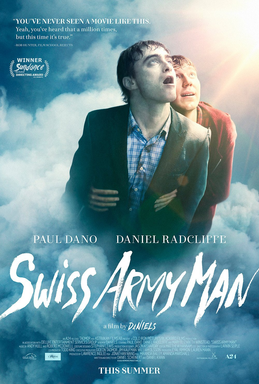Rear Window
1.) How did LB Jefferies break his leg?
He broke it trying to photograph a race car.
2.) What is the significance of always being in Jefferies’ window?
We are limited to Jefferies' perspective of only seeing out through his window.
3.) Would Jeffries have caught Lars if he wasn’t injured and in his wheelchair? Why or why not?
No. Without his injury and being stuck in his wheelchair, he most likely would have not observed his neighborhood, instead probably working photographing difficult shots.
4.) How would your perception of the story change if the camera moved without Jeffries? In other words, if we saw more of the action without seeing through Jeffries' lens, what might change?
The feelings invoked in various scenes would feel different. Since we are viewing from Jeffries' perspective, we as an audience feel what he feels, whether it is his helplessness, anxiety, etc.
5.) How does the movie portray social norms and gender roles in the 50s?
All the ladies in the movie were obsessed with marriage and settling into those standards. The movie was focused around the man in the sense that we see through Jeffries' eyes and characters go about doing what a man says.
6.) Why doesn’t Jeffries want to marry Lisa?
He feels as though Lisa is too good for him and she would not fit his lifestyle.
7.) Why does Lisa change her views about Jeffries peering through the window? When? What is happening to make her buy in to the investigation?
She changes her views about Jeffries peering through the window when she begins to see Lars wrapping rope around a big trunk. She buys into the investigation when she finds out Mrs. Thorwald's purse and jewelry were left behind at the house, something women find taboo during this time.
8.) What does this film suggest about the actions we take when we love someone?
The film suggests that love is a very powerful thing. Love can change a person to do more/different things than one can expect from a person if they love someone a lot. Lisa showed this, going from a passive role in the investigation (hardly being involved) to outright taking the case into her own hands, confronting Lars herself.
9.) Why does no one notice seem to notice Jeffries looking out the window?
Everyone seems to be busy indulging in their own lives. Jeffries may be the main character of this story, but each side character is the main character of their own story, enveloped in their own world.
10.) If the method (of looking out the window at people) is unethical, but the means (of finding a killer) is ethical, is it morally right? What does the film suggest as an answer?
It depends. Clearly "stalking" people and their daily lives is unethical, however, it resulted in catching a killer -- the ends justify the means. If the reason for snooping was not to catch a killer, Jeffries would definitely be seen as way weirder/creepier.
My Thoughts on Rear Window
I thought Rear Window was a very unique film. The fact that our perspective was limited to a window our protagonist looks out of -- it is very different to films I am used to watching. Having that restriction means Alfred Hitchcock as a director needed to be creative in conveying his story. The story was captivating as it invoked feelings of suspense and thrills as we, alongside Jefferies witness a murder and follow the development of solving this murder.



Comments
Post a Comment